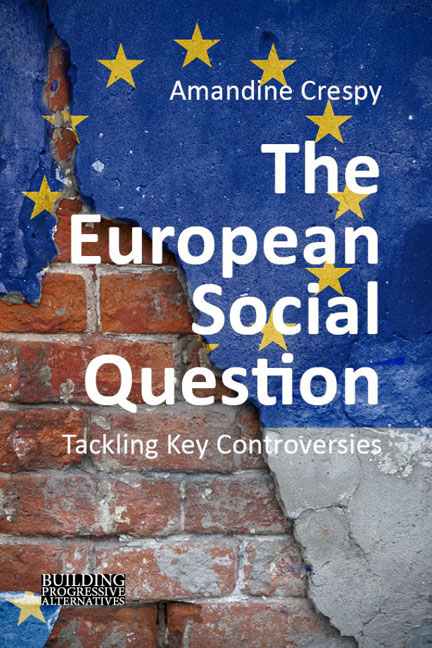Book contents
- Frontmatter
- Contents
- Acknowledgements
- Abbreviations and acronyms
- Dedication
- Introduction: “Social Europe” – irrelevant, catching up or dangerous?
- 1 What is the European social question?
- 2 Is the EU a key player in addressing social issues?
- 3 Are socially minded actors too weak in EU policy-making?
- 4 Is European social regulation a thing of the past?
- 5 Does liberalization undermine social cohesion?
- 6 Does the European social dialogue really protect European workers?
- 7 Does soft coordination support welfare states?
- 8 Is redistribution unconditional?
- 9 Is the EU fit for the social challenges of the twenty-first century?
- Conclusion: from the social question to the democratic question
- Index of CJEU judgments
- References
- Index
9 - Is the EU fit for the social challenges of the twenty-first century?
Published online by Cambridge University Press: 20 December 2023
- Frontmatter
- Contents
- Acknowledgements
- Abbreviations and acronyms
- Dedication
- Introduction: “Social Europe” – irrelevant, catching up or dangerous?
- 1 What is the European social question?
- 2 Is the EU a key player in addressing social issues?
- 3 Are socially minded actors too weak in EU policy-making?
- 4 Is European social regulation a thing of the past?
- 5 Does liberalization undermine social cohesion?
- 6 Does the European social dialogue really protect European workers?
- 7 Does soft coordination support welfare states?
- 8 Is redistribution unconditional?
- 9 Is the EU fit for the social challenges of the twenty-first century?
- Conclusion: from the social question to the democratic question
- Index of CJEU judgments
- References
- Index
Summary
Previous chapters have addressed controversies surrounding European social policy by looking at developments in governance, politics and policies following the creation of the EEC in the aftermath of the Second World War, with a par¬ticular emphasis on the contemporary period. The purpose of this chapter is to look to the future and assess whether the EU is well-equipped to enable Europeans to manage collectively the social challenges that have been posed most acutely since the turn of the twenty-first century. Since 2008, the EU has experienced a period of turbulence described by political actors (notably Jean-Claude Juncker) and social scientists alike as a “polycrisis”. The financial and debt crisis of 2008– 10, the sudden influx of migrants in 2015, the protracted Brexit, recurrent conflicts over democracy and the rule of law and the ongoing Covid-19 pandemic have all questioned the capacity of the EU to sustain its multi-level social, economic and political order against the backdrop of ever-more polarized societies. Reacting rather than acting, Brussels technocrats and national leaders have mostly “improvised” new policy instruments and procedures while for¬ging hard-fought compromises in emergency situations (van Middelaar 2019). In many ways, the European social question lies at the heart of those moments of existential crisis. Successive crises have exacerbated social challenges as young people, women, immigrants and the self-employed are hit hardest by the second historic recession faced by Europe in just over a decade.
Can the EU take the lead in the struggle for social cohesion? Is it fit for pur¬pose in a post-Covid-19 world with simultaneous challenges? Or is it doomed to be a powerless spectator of deteriorating national social models? To address these questions, this chapter looks at three particular issues that, while they can at first sight seem peripheral to the social policy agenda, nevertheless contribute to shape it in important ways. First, this chapter will attempt to draw from the lessons of the Brexit referendum by analysing the links between social policy and the UK's decision to leave the EU. Second, the coronavirus pandemic has placed health at the centre of the social policy debate.
- Type
- Chapter
- Information
- The European Social QuestionTackling Key Controversies, pp. 187 - 212Publisher: Agenda PublishingPrint publication year: 2022



